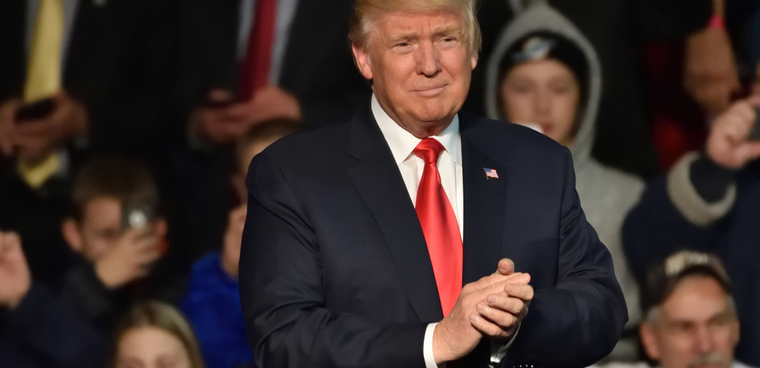Trump signs 2021 funding bill, averting Tuesday shutdown

After threatening a government shutdown, President Trump signed the fiscal year 2021 funding bill and a COVID-19 relief package into law on Sunday evening.

President Donald Trump ended a weekend of worry about a possible government shutdown by signing the fiscal year 2021 appropriations bill and pandemic relief legislation into law on Sunday night.
The package totals $2.3 trillion and includes a round of $600 direct payments to Americans suffering from the economic fallout of the coronavirus pandemic and $300 weekly payments of enhanced unemployment benefits--a benefit potentially cut short for one week because of the delay in signing the bill, which passed Congress on Dec. 21 and was presented for his signature a few days after.
Trump had called the bill a "disgrace," complaining that the $600 payments were too low. He also said he wanted to claw back certain foreign aid line items and other spending, most of which were contained in the budget proposal his administration released earlier this year.
The government had been poised to shut down on midnight on Monday, shuttering government offices, putting hundreds of thousands of federal employees into furlough status and potentially compromising the pandemic response as well as the ongoing mitigation of the SolarWinds hack.
The president's stated reluctance to sign the law left Congress with few options to respond. Because the bill passed so late in the legislative session, Trump could have exercised a rare pocket veto by letting the bill languish until the end of the 116th Congress. In such a situation, Congress is powerless to override and pass the legislation on its own.
While federal employees can breathe a sigh of relief that a Tuesday shutdown is off the table, the bill that signed into law does nothing to prevent the implementation of an executive order that creates a new category of excepted service called Schedule F, under which tens of thousands of federal employees stand to lose civil service protections and union representation.
In a statement, Trump said he expected the House and Senate to take up a bill to enlarge the direct payments to Americans to $2,000 and that he would suggest rescissions to the spending items he objected to. The president is entitled to ask Congress to claw back funds through a rescission request but Congress is not obliged to withhold funds.
Rep. Nita Lowey (D-N.Y.), the chairwoman of the House Appropriations Committee, said Sunday night that her committee "will reject any rescissions submitted by President Trump."
Trump also said he sought a voter fraud probe in the Senate and a review of Section 230 of the Communications Decency Act, which protects tech companies from liability claims for content posted by users. Trump cited his objections to Section 230 when he vetoed the National Defense Authorization Act last week.
Congress will be back in session on Monday to take up a veto override to pass the NDAA, and the House is expected to vote on a measure to increase direct payments to Americans to $2,000 for adults and $600 per child. The House will vote under suspension of the rules, so a supermajority will be required for the bill to pass. The Senate could pass such a measure under unanimous consent, but that appears unlikely.
"Every Republican vote against this bill is a vote to deny the financial hardship that families face and to deny the American people the relief they need," House Speaker Nancy Pelosi (D-Calif.) said in a statement.
Senate Majority Leader Mitch McConnell (R-Ky.) issued a statement praising the bill but did not mention a vote on the expanded direct payment legislation.
NEXT STORY: Trump threatens yet another shutdown



